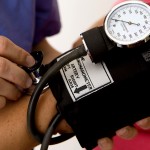After years of austerity and being asked to do more with less, the pressure is taking its toll.
Facts and figures
In UNISON’s 2017 Stress Survey 67% of members said their employers had never spoken to them about Stress.
The Health and Safety Executive (HSE) definition of work related stress is: The adverse reaction people have excessive pressures or other demands placed on them at work. The HSE reports that there were half a million workers suffering work related stress in 2015/16.
How does this issue affect our members?
Many of our members are feeling stressed overworked and underpaid too scared to take time out due to oppressive sickness absence policies and stuck at work with bullying managers, stress at work has become endemic. Many employees are under undue pressure.
According to the HSE, public sector workers are most affected with Education Health and Social Care, high on the list of most stressed out organisations.
What is UNISON calling for?
UNISON is calling for employers to ditch the “resilience agenda” where they tell employees to “toughen up” and to take stress seriously. Employers should risk assess stress in the same way that they would any other hazard.
The HSE stress management standards and the assessment tool are a great place to start for any organisation and they are autonomous – not manipulated to masks the real issues.
What are we doing?
We understand the need for employers to take responsibility for stress at work.
We also know that many have avoided this since the HSE Stress standards have come out.
With this in mind, we provide guidance for safety reps on raising stress as an issue at work, with guidance on the effects of stress (and worsening mental health) and also the “Guarding against Stress” toolkit on engaging senior managers on adopting the HSE Stress management approach to improve workers well being at work.
Are you affected by stress at work? Read our Get Help page on stress for more advice.

